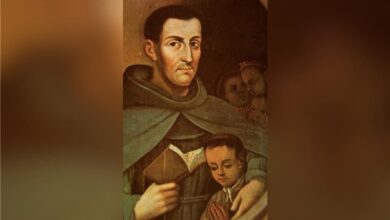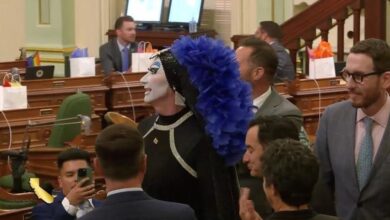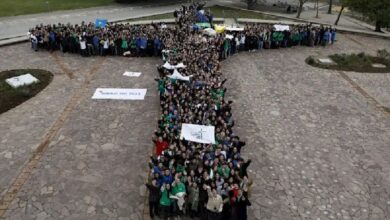Bach on a mountain: Wilderness experience informs faith at Wyoming Catholic College
Cheyenne, Wyo., Jul 16, 2023 / 07:00 am (CNA).
Incoming students at Wyoming Catholic College experience an unusual introduction to their academic life — they are required to make a three-week wilderness trek.
The college’s academic dean, Kyle Washut, who grew up in Wyoming and enjoyed its natural splendors, told CNA he accompanied students on the very first sponsored mountain hike nearly two decades ago at Wyoming Catholic College (WCC).
“Since the beginning, one of our goals, academically, has been to rediscover Catholic education,” he said.
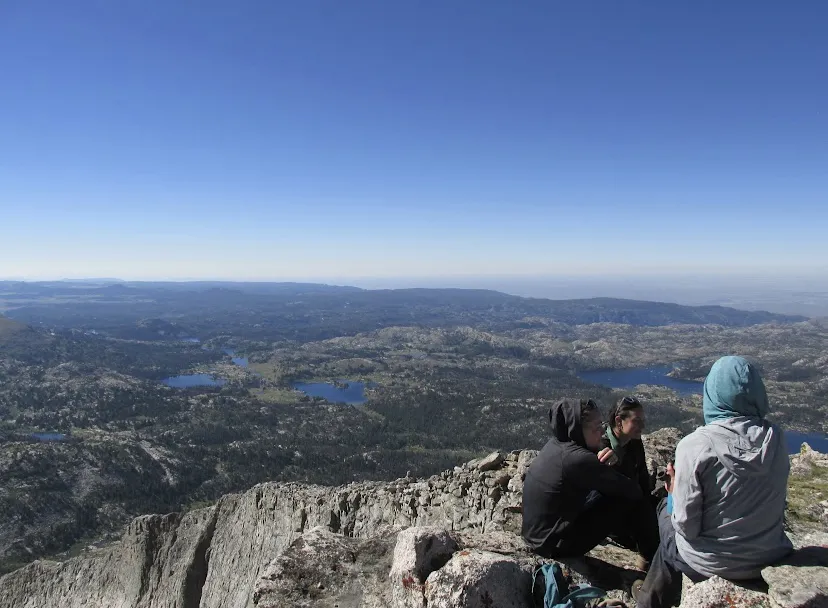
Founded in 2005 in Lander, a small town in the western part of the state, WCC offers a unique Great Books curriculum coupled with the Catholic tradition. This is in addition to hikes in the Rocky Mountains — even in winter — and annual short courses in mountaineering, horseback riding, and other outdoor skills. All incoming freshman students are required to take a three-week backpacking trip before beginning their academic year. Men and women are kept in separate groups and are accompanied by a priest.
In medieval monasteries, said Washut, who also teaches theology, “there was attentiveness to nature or the metaphorical ‘book of nature’ as the first book that one began to read. In that book, one encounters Christ, nurturing one’s soul and guided there by the study of Scripture and Church Fathers, and study of philosophy and science that emerged out of it.”
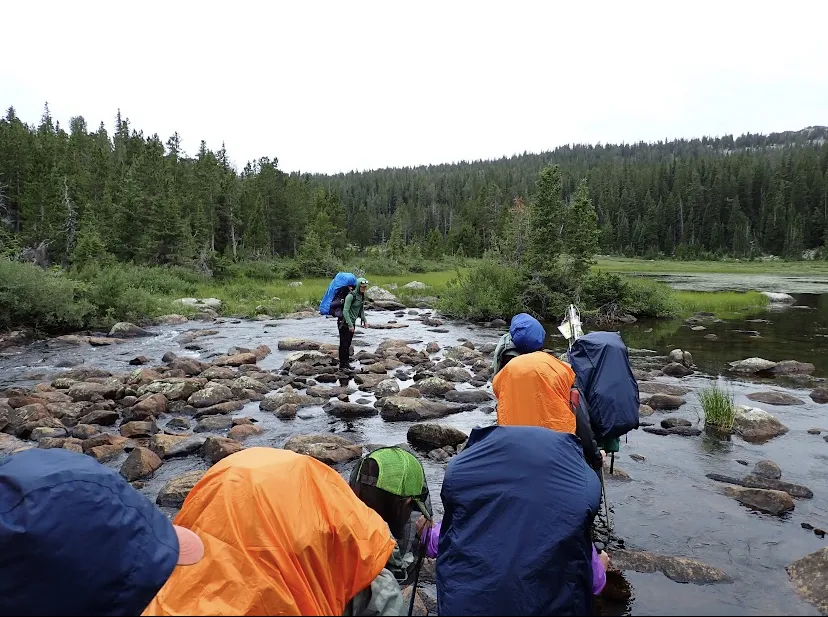
While many see God’s creation as something to exploit, extract, or experiment with, Washut said, WCC wants students “to be present in nature and develop a receptivity and openness to contemplation.”
WCC seeks to recover the “rootedness” of the monastic tradition in finding “God’s revelation in his creation,” Washut said, and foster “a habit of listening” to protect Catholic education from an “overly cerebral” approach.
Growth and challenges
Interviews with several WCC students reveal enthusiasm for the college’s approach.
Emma Roberts considered other colleges, but a visit in high school to WCC convinced her to apply. “During the summer program, I realized WCC had made me grow so much during a two-week visit that I wanted more of that. It pushed me outside of myself, largely because of the outdoor program,” she recalled.
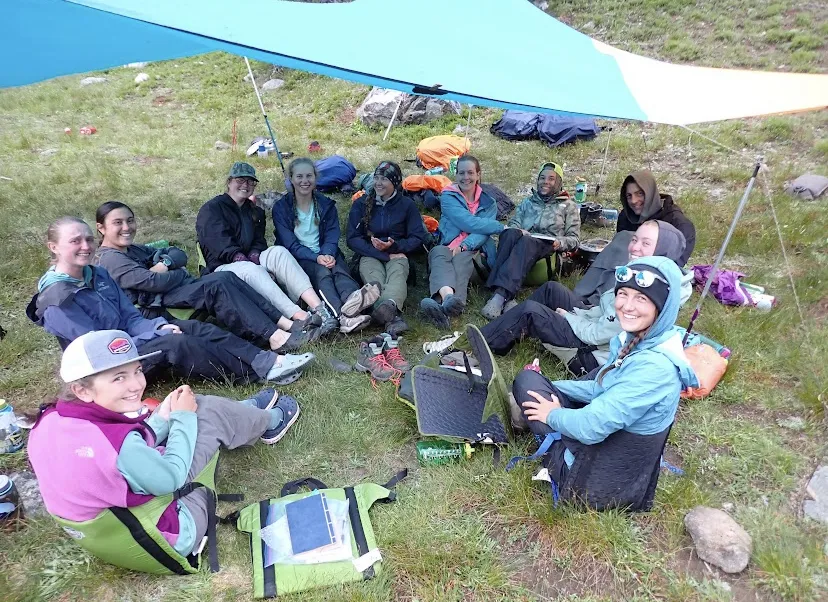
As a 2020 WCC alumna who now teaches at Our Lady of Lourdes Classical School in Denver, Roberts is a Florida native who had never seen mountains before arriving in Wyoming. She said her first mountain hike made her “depend on God to be successful in anything.”
Sophomore Aeja DeKuiper was accustomed to working outdoors on her family’s Michigan farm, but learning to cooperate with other young women of varying temperaments was a challenge. “Even in our group of nine, we had a range of personalities and everyone was able to get through it and become stronger.”
Discovering God’s creation as described by the Psalms
For those who may be considering WCC, DeKuiper had some advice.
“If you are looking for something easy, it’s probably not for you,” she said. “But if you are willing to put in the time and effort and come with an open mind, it’ll be one of the best experiences you’ve ever had.”
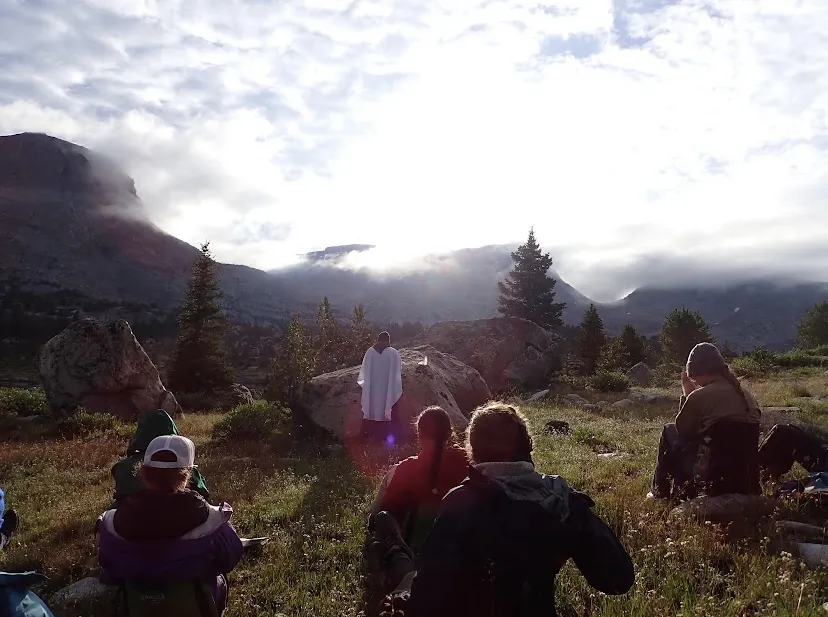
Senior Margaret Serchen will lead freshmen this August on a three-week hike. The Wisconsin native had never backpacked before starting at WCC but has since camped even in the winter.
“I hadn’t expected how challenging it was. It was very raw and physically demanding,” she recalled. Serchen remarked on the unexpected “simplicity” of the hiking as well as making new friends.
“You’re carrying everything you need on your back; it’s very pilgrim-like because you’re moving every day, coming to a beautiful place — a lake, a waterfall — set up a camp, and then the next morning get up early and keep moving,” she said.
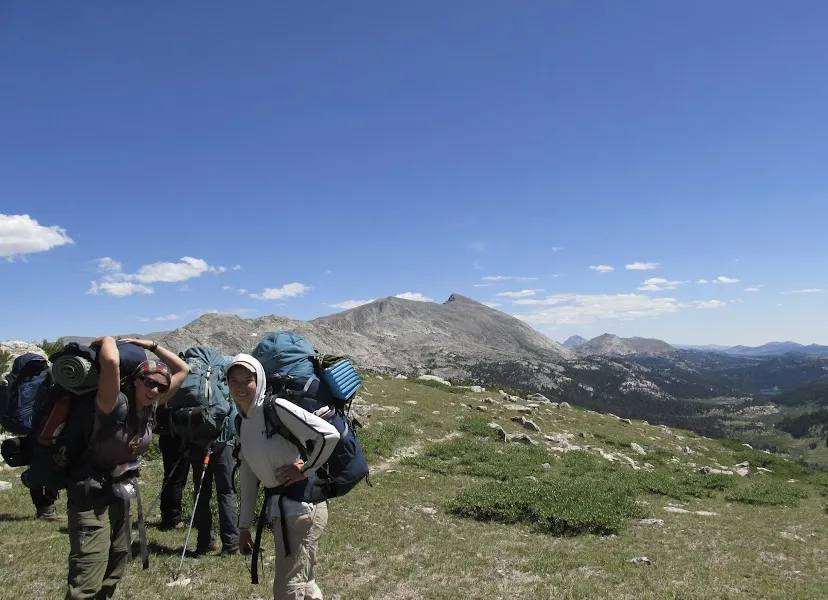
When asked how this contributed to faith, Serchen remarked: “One is by being immersed in the actual beauty God created. Man-made beauty is also beautiful, and cities offer fine art, architecture, and gardens. However, there is something so raw when you’re in a canyon God directly carved with wind and water, and there are no comforts you are used to.”
“So much of the Psalms are steeped in words about the natural world and experiencing what the Psalmist is talking about: the quiet beauty, the terrifying winds and waters … that power that is dangerous and beautiful helps you to understand the Psalms,” she said. “Another thing is learning silence. There’s a lot of noise that we live in all the time. Going into the wilderness showed me the noise floating around in my mind all the time. It helped me to quiet that and to pray.”
Serchen said that being comfortable with mountain hiking and classical education led her and fellow students last summer to climb a mountain and bring along dress clothes to enjoy a picnic on its summit. While there, she even played a tune by Johann Sebastian Bach on her violin.
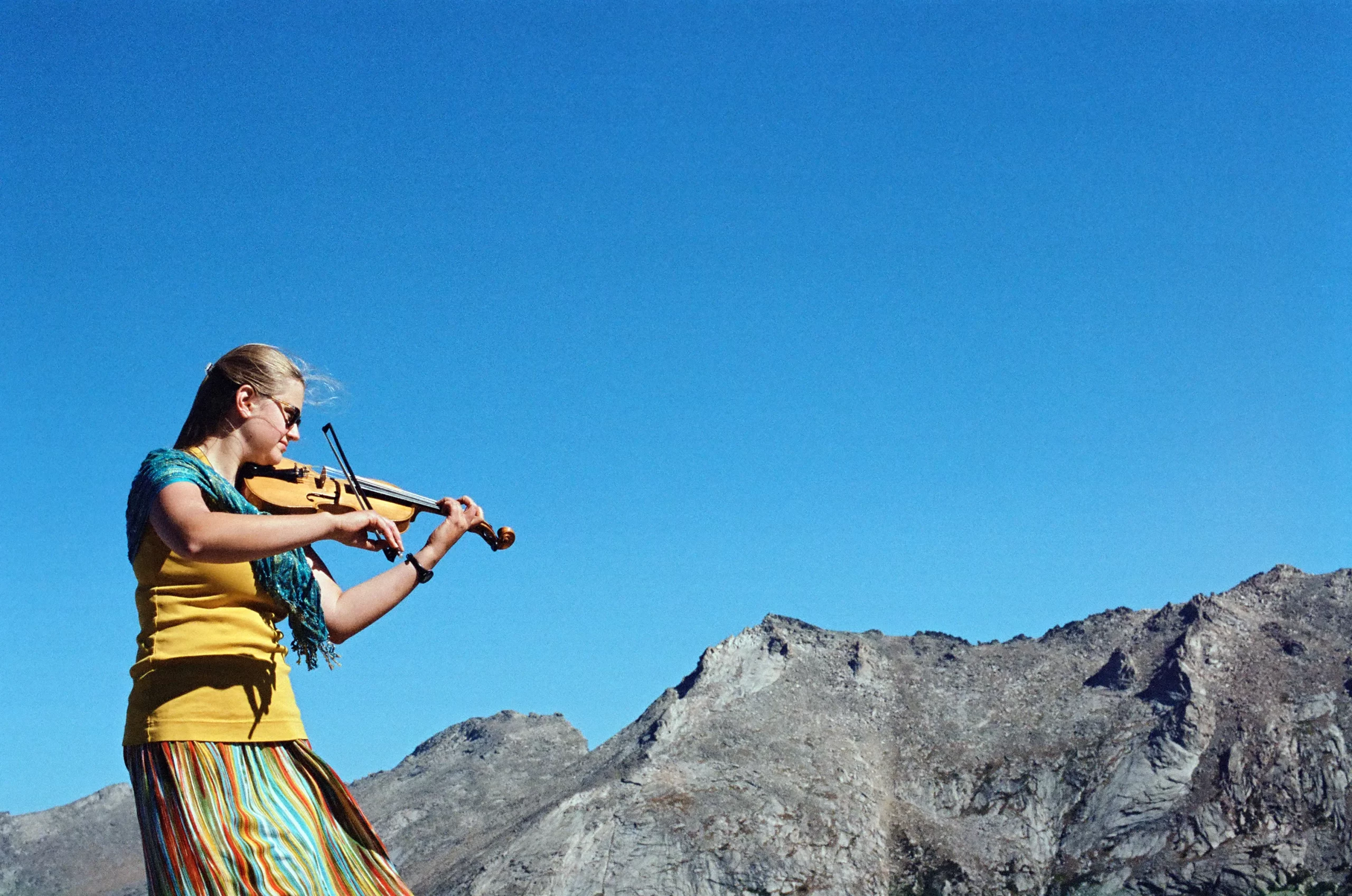
In addition to its wilderness experiences, WCC has an unusual technology policy. Students’ cellphones are locked up during the academic year and internet access is limited and monitored. But Serchen said applicants should not be put off by this.
“I really found it freeing, and [it] allows us to put technology in its proper place. It’s not that it’s bad, but we don’t know how to use it because it developed so quickly. People my age communicate on our phones, so to not have them for months at a time allows us to form deep friendships and ask good questions,” she said.
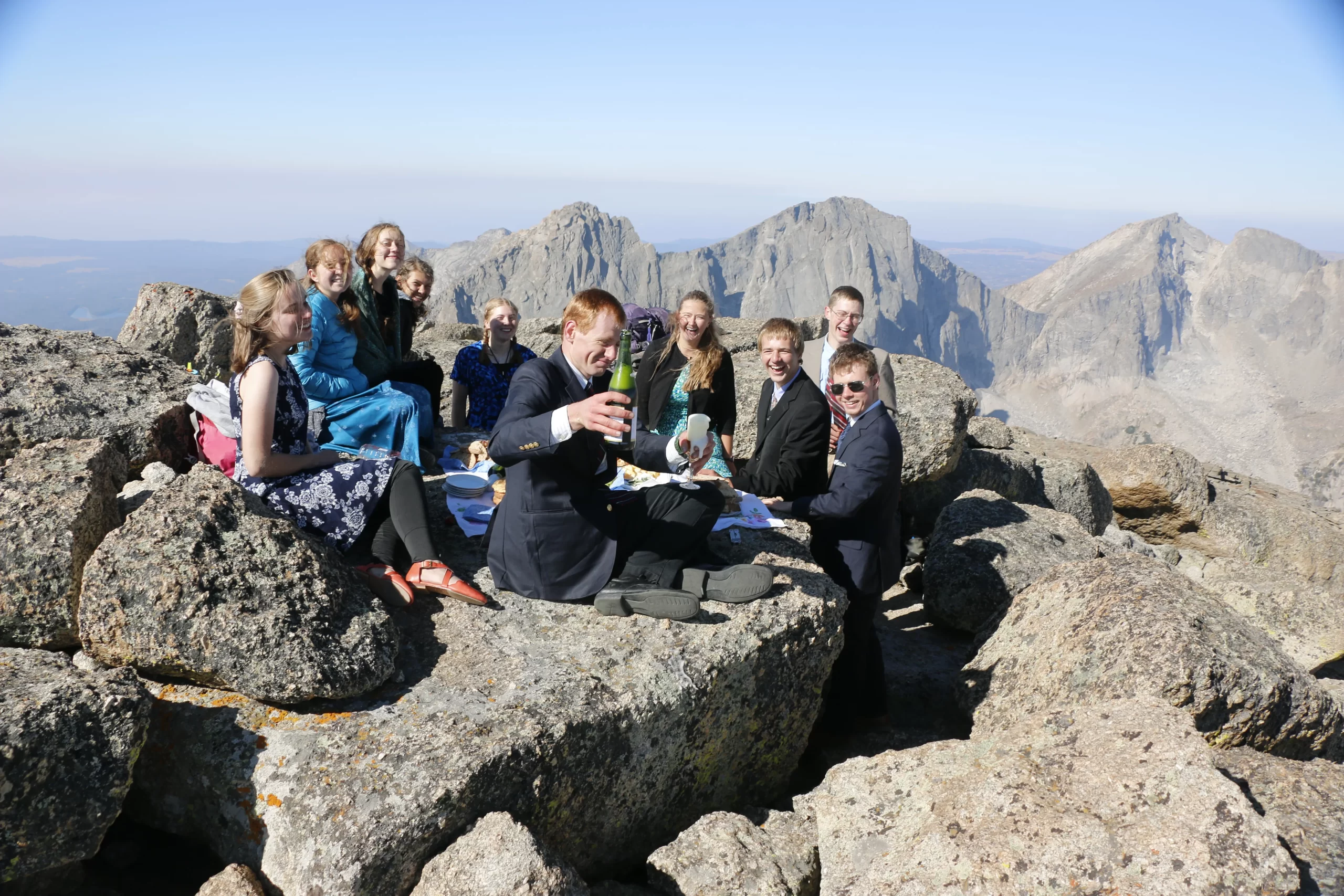
The habit of being present
Academic dean Washut said he delivered a paper recently at the University of Notre Dame about the results of WCC’s policies and requirements for students.
“Students develop a kind of rootedness in ‘place’ or an awareness of ‘place’ that is tied into the technology policy. When you are in the mountains, you are in the mountains, so you’re always aware of where you are and attentive to where you are,” he said.
He added: “In the modern era of television and ubiquity of smartphones, there’s a way in which we are habituated to never fully being in place. We want to know what’s going on in Washington, D.C., or what our friends are doing on social media. The habit of being present is something that begins on that three-week trip and is carried forward through the four years.”


